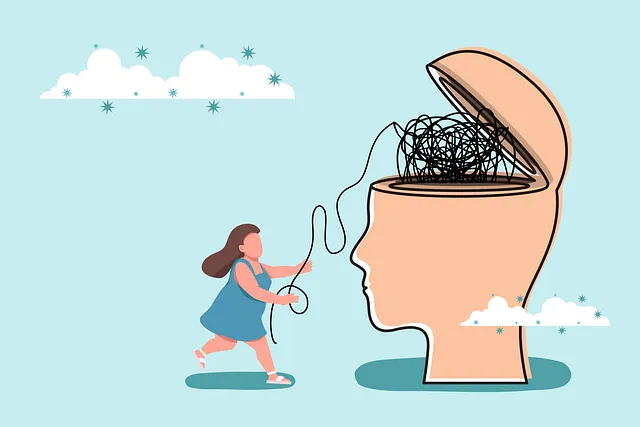Mental health policy analysis, using examples from Lafayette Kaiser programs, is a strategic tool for advocates pushing for improved healthcare. By evaluating existing policies, identifying gaps, and recommending evidence-based solutions like cultural competency training, advocates enhance service delivery and inclusivity. Lafayette Kaiser's holistic approach focuses on patient care and practitioner well-being through empathy-building, risk management, and confidence-boosting initiatives. Evaluating policy impact reveals disparities in access and intervention effectiveness, guiding improvements such as tailored programs for diverse populations and increased funding advocacy. Collaboration with stakeholders across sectors aligns with Lafayette Kaiser's data-driven reform efforts, ultimately reducing the burden on mental health systems.
Mental health policy advocacy is a powerful tool for driving systemic change. This article delves into the critical area of mental health policy analysis, exploring its potential to shape societies and improve lives. We begin by establishing a foundation with an understanding of Mental Health Policy, followed by an in-depth look at the Lafayette Kaiser Mental Health Programs as a case study. Subsequent sections analyze policy impact, identify gaps, and offer strategies for improvement, culminating in effective advocacy techniques for mental health reform. By examining the Lafayette Kaiser programs, we gain insights into successful policy implementation and its far-reaching benefits.
- Understanding Mental Health Policy: A Foundation for Advocacy
- The Lafayette Kaiser Mental Health Programs: An Overview
- Analyzing Policy Impact and Gaps: Strategies for Improvement
- Effective Advocacy Techniques for Mental Health Reform
Understanding Mental Health Policy: A Foundation for Advocacy

Mental health policy forms the backbone of support for individuals navigating emotional regulation challenges. Understanding these policies is paramount for advocates aiming to influence and improve healthcare systems. Lafayette Kaiser mental health programs exemplify this, demonstrating that effective policy analysis can lead to tangible improvements in access to care. By examining existing legislation and identifying gaps, advocates can pinpoint areas requiring attention, whether it’s enhancing services for specific demographics or ensuring equitable access across diverse communities.
This foundational step is crucial in the Mental Health Policy Analysis and Advocacy process. It enables advocates to advocate for evidence-based solutions, such as implementing Healthcare Provider Cultural Competency Training programs. Such initiatives not only improve service delivery but also foster a more inclusive healthcare environment, ultimately enhancing the effectiveness of mental health support.
The Lafayette Kaiser Mental Health Programs: An Overview

The Lafayette Kaiser Mental Health Programs represent a comprehensive initiative aimed at addressing the nuanced challenges within the mental health sector. These programs prioritize Lafayette Kaiser mental health services by fostering an environment that nurtures both patient care and professional well-being. Through innovative approaches, they integrate Empathy Building Strategies to enhance the connection between mental health professionals and their clients, ensuring a more compassionate and effective treatment experience.
Moreover, recognizing the inherent risks associated with this field, the programs implement robust Risk Management Planning for Mental Health Professionals. This proactive measure not only safeguards practitioners but also improves overall service delivery by fostering a culture of resilience and strategic planning. Additionally, the emphasis on Confidence Boosting initiatives empowers professionals, enabling them to navigate complex situations with enhanced skillsets and composure, ultimately reflecting in improved patient outcomes.
Analyzing Policy Impact and Gaps: Strategies for Improvement

Evaluating the impact of mental health policies is a pivotal step in ensuring their effectiveness and identifying areas for enhancement. Lafayette Kaiser mental health programs have been instrumental in providing support, but a thorough analysis reveals gaps that demand attention. By examining existing policies, researchers can uncover disparities in access to care, particularly for marginalized communities, and assess the reach and outcomes of current interventions.
Strategizing for improvement involves integrating evidence-based practices such as self-esteem improvement initiatives and conflict resolution techniques into policy frameworks. Enhancing mental health services through these methods can foster resilience, boost confidence, and address underlying social determinants contributing to poor mental well-being. Tailoring programs to diverse populations and advocating for increased funding allocation will be pivotal in filling these gaps and creating a more inclusive and responsive mental health care system.
Effective Advocacy Techniques for Mental Health Reform

In the pursuit of mental health reform, effective advocacy techniques are instrumental in driving policy changes that can significantly improve access to quality care. Lafayette Kaiser mental health programs have been at the forefront of promoting innovative strategies, emphasizing holistic approaches that integrate physical and psychological well-being. One powerful technique involves leveraging data and research to back up advocacy efforts. By presenting compelling evidence on the efficacy of certain interventions or the gaps in existing services, advocates can build strong cases for policy revisions.
Additionally, building alliances with stakeholders across various sectors—including healthcare providers, policymakers, and community organizations—is pivotal. Collaborative efforts facilitate a more comprehensive understanding of complex mental health issues. For instance, integrating risk assessment tools like those used by mental health professionals in decision-making processes can enhance early intervention strategies aimed at emotional regulation. Such multi-faceted approaches not only advocate for improved mood management but also ensure that the most vulnerable populations receive tailored support, ultimately reducing the burden on mental health systems.
Mental health policy analysis and advocacy are essential components in ensuring comprehensive support for individuals dealing with psychological well-being issues. By understanding the foundational concepts and examining existing programs, such as the Lafayette Kaiser Mental Health Programs, we can identify areas of improvement. Through strategic policy analysis and the implementation of effective advocacy techniques, it is possible to drive positive change and bridge gaps in mental health care. This process empowers advocates to navigate complex systems, ultimately fostering a healthier and more supportive society for all.






